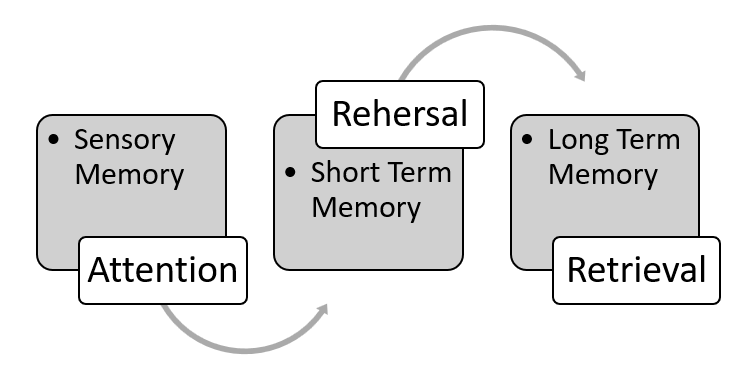Cognitive Psychology Notes
DEPARTMENT OF PSYCHOLOGY, S. P. PUNE UNIVERSITY
SEMESTER-I
EP: 101- Cognitive Psychology
(Major Paper)
LEARNING OBJECTIVES:
To acquaint to the students with:
1) The processes involved in sensation and perception
2) Insight into one’s own and other’s behavior and underlying mental processes
3) Understanding of major concepts, theoretical perspectives, and empirical findings in cognitive psychology
LEARNING OUTCOMES:
Students will be able to:
1) Demonstrate a comprehensive understanding of the processes involved in sensation and perception.
2) Analyze and interpret behavior from a cognitive perspective, considering underlying mental processes.
3) Critically evaluate and apply major concepts, theories, and empirical findings in cognitive psychology.
4) Use cognitive psychology principles to analyze and resolve issues in the actual world.
1.0. NATURE AND IMPORTANCE OF COGNITIVE PSYCHOLOGY [15]
1.1. Cognitive Psychology: Definition, Nature and Emergence of Cognitive Psychology
1.2. Domains & Current Research Areas of Cognitive Psychology and Research Methods of Cognitive Psychology
1.3. Theories of Cognitive Development – Piaget, Vygotsky
1.4. Current Paradigms of Cognitive Psychology – Information Processing Approach, Ecological Approach
1.5. Application: Mental imagery and Cognitive Maps
2.0. SENSATION, ATTENTION AND PERCEPTION [15]
2.1. Sensation – Psychophysics: Concepts and methods.
2.2. Attention: (a) Functions of Attention: Divided Attention, Selective Attention (b) Theories of attention process (c) Signal Detection Theory and Vigilance.
2.3. Perception Approaches: Gestalt, Bottom-Up, Top-Down and Pandemonium Model
2.4. Perception: Depth and Movement
2.5. Application: Subliminal Perception, Perceptual Defense, and Extra-sensory Perception, Cross-cultural Studies
3.0. LANGUAGE AND RELATED COGNITIVE PHENOMENA [15]
3.1. Understanding Spoken Language: Speech Perception, Constituent Structure, Transformational grammar and Factors Affecting Comprehension
3.2. Reading: Perceptual Process, Reading and Comprehension
3.3. Speaking: Selecting the Content of Speech, Speech Errors, Gestures, Social Context of Speech
3.4. Writing: Comparing Speaking and Writing, Cognitive Tasks Involved in Writing
3.5. Application: Multilingualism and Second-language Acquisition
4.0. PROBLEM-SOLVING, CREATIVITY AND DECISION MAKING [15]
4.1. Problem-solving: Types of Problem, Problem-solving Cycle, Strategies, and Obstacles
4.2. Creativity: Definition, and Approaches: Torrance, Getzels and Jackson, Guilford, Wallach and Kogan
4.3. Types of Reasoning – Syllogistic and Conditional;
4.4. Decision-making: Decision-making Heuristics, Applications of Decision-making Research
4.5. Application: Artificial Intelligence and Digital Learning
BOOKS FOR READING:
1. Farmer, T. A., & Matlin, M. W. (2019). Cognition. John Wiley & Sons.
2. Galotti, K. M. (2017). Cognitive psychology in and out of the laboratory. Sage Publications.
3. Sternberg, R.J., Sternberg, K., and Jeff, M. (2011). Cognitive Psychology. Wadsworth.
4. Kellogg, R. T. (2015). Fundamentals of cognitive psychology. Sage Publications.
5. Solso, R. L. (2014). Cognitive Psychology (8th ed). Pearson Education: India.
6. Glass, A. L. (2016). Cognition: A neuroscience approach. Cambridge University Press.
7. Wade, C. and Tavris, C. (2007). Psychology. ND: Pearson Education.
8. Morgan, C. T., & King, R. A. (2017). Introduction to Psychology: McGraw-Hill.
9. Feldman, R. S. (2021). Understanding psychology (15th ed. McGraw-Hill.
10. Best, J. B. (1999). Cognitive Psychology. USA: Wadsworth Publishing Co.
11. Guenther R. K. (1998). Human Cognition. New Jersey: Prentice-Hall.
12. Kaplan, S. & Kaplan, R. (1982). Cognition and environment. N.Y.: Praeger Publishers
13. Reed S. K. (1998). Cognition: Theory and application (3rd ed). California: Brooks/Cole Pub. Company
FAQ of Cognitive Psychology
1. What is cognitive psychology?
Cognitive psychology is the branch of psychology that focuses on the study of mental processes such as perception, memory, problem-solving, attention, language, and decision-making. It investigates how people acquire, process, store, and retrieve information.
2. What are the main areas of study in cognitive psychology?
Cognitive psychology covers various areas, including:
- Perception: How we interpret sensory information.
- Memory: How information is stored and recalled.
- Attention: How we focus on specific stimuli.
- Language: How language is learned and understood.
- Problem-Solving and Decision-Making: How we solve problems and make choices.
- Cognitive Development: How thinking and reasoning evolve over time.
3. What research methods are used in cognitive psychology?
Cognitive psychologists use a range of methods to study mental processes, including:
- Experimental studies: Conducting controlled experiments to test hypotheses.
- Neuroimaging techniques: fMRI, PET, and EEG to observe brain activity.
- Observational studies: Observing behavior in natural settings.
- Computer modeling: Simulating cognitive processes using computational methods.
- Behavioral measures: Tasks like reaction time tests, accuracy rates, and error patterns.
4. How does cognitive psychology differ from behaviorism?
Behaviorism focuses on observable behaviors and the ways they’re shaped by the environment. Cognitive psychology, in contrast, emphasizes internal mental processes that cannot be directly observed, such as thoughts, memories, and decision-making strategies.
5. What is the Information-Processing Approach?
The Information-Processing Approach likens the human mind to a computer, where mental processes are seen as a series of steps through which information is encoded, stored, and retrieved. This approach emphasizes how we take in information (input), process it (through attention and memory), and produce responses (output).
6. What role does attention play in cognitive psychology?
Attention is a key focus in cognitive psychology because it determines which information we process more deeply and which we ignore. Selective attention allows us to focus on particular stimuli while filtering out others. It’s crucial for learning, memory, and effective decision-making.
7. What is mental imagery in cognitive psychology?
Mental imagery involves creating images in the mind without external sensory input. Visual imagery is the most common type studied in cognitive psychology, though other types, such as auditory or tactile imagery, are also explored.
8. How is cognitive psychology applied in real-world settings?
Cognitive psychology has a wide range of applications, including:
- Education: Enhancing learning and memory techniques.
- Clinical psychology: Understanding cognitive distortions in mental health issues.
- User interface design: Improving how people interact with technology.
- Artificial intelligence: Modeling human thought processes to develop smarter systems.
9. What is memory?
Memory is a fundamental concept in cognitive psychology, as it deals with how we encode, store, and retrieve information. Key areas include short-term memory, long-term memory, working memory, and the processes of forgetting.

Atkinson and Shiffrin Model of Memory
10. Who are some key figures in cognitive psychology?
Some key figures include:
- Ulric Neisser: Often considered the “father” of cognitive psychology.
- Jean Piaget: Known for his work on cognitive development in children.
- Noam Chomsky: A linguist who greatly influenced cognitive psychology with his theory of innate language structures.
- Daniel Kahneman: Notable for his research on judgment and decision-making.
Niwlikar, B. A. (2023, December 23). Cognitive Psychology Notes. Careershodh. https://www.careershodh.com/cognitive-psychology-notes/
